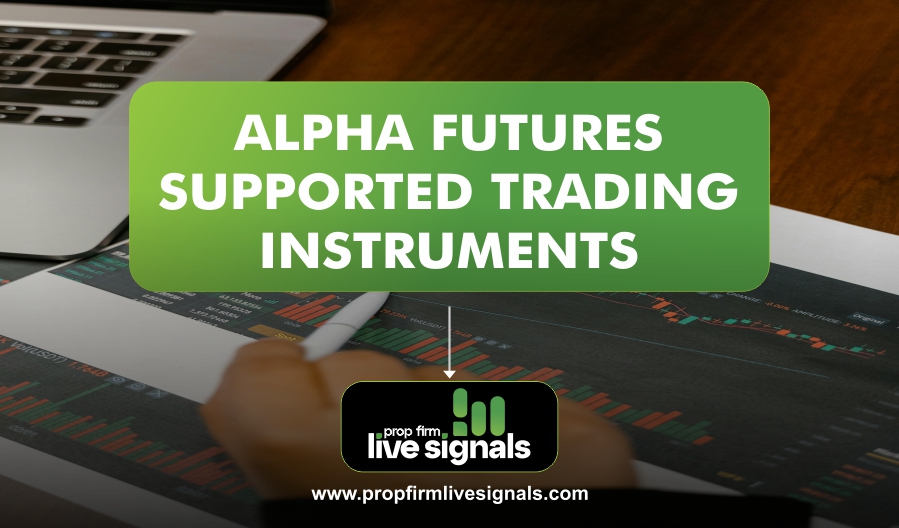What is Alpha Futures?
Alpha Futures is a trading platform that facilitates futures contracts across multiple asset classes. Futures contracts are standardized agreements to buy or sell an asset at a predetermined price on a future date. Alpha Futures provides traders with access to various markets, including commodities, stock indices, currencies, interest rates, and cryptocurrencies.
Understanding Futures Trading
Before diving into the instruments supported by Alpha Futures, it is essential to understand how futures trading works.
What are Futures Contracts?
Futures contracts allow traders to speculate on the price movement of an asset without owning it physically. These contracts are traded on regulated exchanges and have expiry dates.
Spot Trading vs. Futures Trading
- Spot Trading: Immediate purchase or sale of an asset at the current market price.
- Futures Trading: Agreement to buy or sell an asset at a future date for a fixed price.
Why Trade Futures?
- Leverage: Futures contracts allow traders to control large positions with relatively small capital.
- Hedging: Businesses and investors use futures to protect against adverse price movements.
- Speculation: Traders can profit from price fluctuations in different markets.
Alpha Futures Supported Trading Instruments
Alpha Futures provides access to a wide range of asset classes. Let’s explore each category in detail.
1. Commodity Futures
Commodity futures allow traders to speculate on the price movements of physical goods, including metals, energy products, and agricultural commodities.
Popular Commodity Futures:
- Crude Oil (WTI, Brent): A key energy commodity used for hedging and speculation.
- Gold & Silver: Precious metals that serve as safe-haven assets.
- Natural Gas: Traded by energy companies and speculators.
- Corn, Wheat, Soybeans: Agricultural futures used by farmers and traders to manage price risk.
2. Stock Index Futures
Stock index futures allow traders to speculate on the performance of major stock market indices.
Commonly Traded Stock Index Futures:
- S&P 500 Futures (ES): Tracks the performance of 500 large-cap U.S. companies.
- NASDAQ-100 Futures (NQ): Represents technology and growth-oriented stocks.
- Dow Jones Industrial Average Futures (YM): Covers 30 major industrial companies.
- FTSE 100 Futures: Represents the top 100 companies listed on the London Stock Exchange.
3. Currency Futures
Currency futures enable traders to bet on the future value of different currency pairs.
Key Currency Futures:
- EUR/USD: Euro against the U.S. dollar.
- GBP/USD: British pound against the U.S. dollar.
- USD/JPY: U.S. dollar against the Japanese yen.
Currency futures are widely used by forex traders and institutions to manage currency risk.
4. Interest Rate Futures
Interest rate futures allow traders to hedge or speculate on future interest rate movements.
Common Interest Rate Futures:
- U.S. Treasury Bonds: Used by traders to hedge interest rate risk.
- Eurodollar Futures: Reflect market expectations for short-term U.S. interest rates.
5. Cryptocurrency Futures
Cryptocurrency futures allow traders to gain exposure to digital assets without directly owning them.
Popular Crypto Futures:
- Bitcoin Futures (BTC): Tracks Bitcoin’s price movements.
- Ethereum Futures (ETH): Represents Ethereum’s price action.
Crypto futures offer high volatility and potential for significant profits, but they also come with substantial risk.
How to Trade Futures on Alpha Futures
If you are interested in trading futures on Alpha Futures, follow these steps:
- Choose Your Trading Instrument: Decide which asset class you want to trade.
- Understand Margin and Leverage: Futures trading involves leverage, so it’s essential to manage risks properly.
- Analyze Market Trends: Use technical and fundamental analysis to make informed decisions.
- Place Your Trade: Enter a long (buy) or short (sell) position.
- Monitor and Manage Your Position: Set stop-loss and take-profit levels to control risks.
Benefits of Trading Futures on Alpha Futures
- High Liquidity: Futures markets are highly liquid, ensuring smooth order execution.
- Leverage Opportunities: Control large positions with a fraction of the capital.
- Diversification: Access multiple asset classes for a well-balanced portfolio.
- Hedging Benefits: Protect against unfavorable price movements.
- 24/7 Market Access: Some futures instruments, like crypto futures, are available around the clock.
Risks and Challenges of Futures Trading
While futures trading offers many benefits, it also comes with risks:
- High Volatility: Prices can change rapidly, leading to potential losses.
- Leverage Risk: While leverage magnifies profits, it also increases potential losses.
- Margin Calls: If the market moves against your position, you may need to deposit more funds.
- Market Speculation: Trading without a solid strategy can lead to financial losses.
Conclusion
Alpha Futures provides traders with access to a wide range of futures trading instruments, including commodities, stock indices, currencies, interest rates, and cryptocurrencies. While futures trading offers significant opportunities, it also carries risks that require careful management. Whether you are a beginner or an experienced trader, understanding the supported trading instruments on Alpha Futures can help you make informed trading decisions.
Frequently Asked Questions (FAQs)
What is the minimum capital required to trade futures on Alpha Futures?
The minimum capital varies depending on the contract size and margin requirements. It’s recommended to check with the platform for specific details.
Which futures contracts have the highest trading volume?
Stock index futures (S&P 500), crude oil futures, and Bitcoin futures tend to have the highest trading volumes.
Can beginners trade futures, or is it only for professionals?
While professionals frequently trade futures, beginners can also participate with proper education and risk management strategies.
What are the trading fees and commissions for futures trading?
Alpha Futures charges commissions based on contract types and trade volume. Always check the platform’s fee structure before trading.
How do I choose the best futures trading strategy?
Strategies like trend following, scalping, and swing trading are popular among futures traders. Choose one that matches your risk tolerance and experience level.
Is crypto futures trading riskier than traditional futures trading?
Yes, due to high volatility, crypto futures carry higher risks compared to traditional asset classes.
What happens if my futures position goes against me?
If your position moves unfavorably, you may face margin calls or liquidation, so proper risk management is essential.




